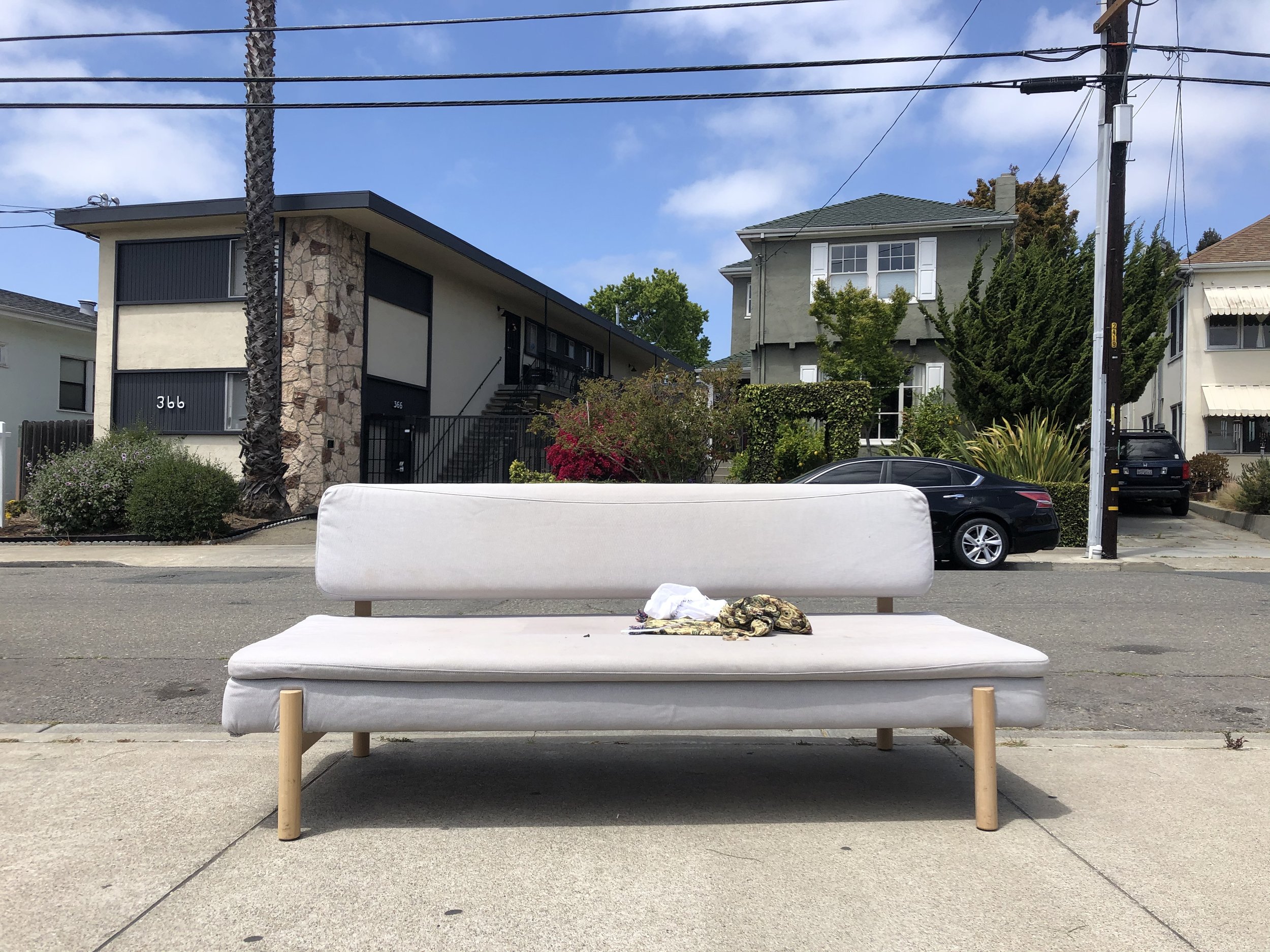Report on Furniture Waste in Oakland Reveals Unexpected Findings
Blog by Jamie Facciola
I want to share an emerging area of opportunity: furniture waste. A topic that resonates in its ubiquity and infamy.
For 15 months, I documented the street furniture I came across in my SF Bay Area neighborhood and was stunned by what I discovered: over 50,000 pounds of furniture within two miles of my home, of which, 89% was reusable, with about a third needing repair.
My city has long struggled with discarded furniture. In 2017, Oakland spent $5.5 million to clean up illegal dumping and that amount will surely be dwarfed since service requests tripled to over 30,000 in 2020, according to the San Francisco Chronicle. Meanwhile, the city published the groundbreaking Equitable Climate Action Plan in July 2020 that, among other things, called for robust support of and investment in green jobs, local reuse and repair infrastructure, and a decrease in lifecycle emissions, which commonly comes from extending a material's life, such as repairing and reusing a couch. A couch which could be used to help furnish homes for people coming out of homelessness, for example.
It begs the question: How can we address millions of tons of imperfect street furniture in an extractive economy that undervalues labor and overvalues disposables, while meeting our waste, equity and climate goals?
I've written up my findings into a shareable case study so it can be used as a reference point to help shift the language, understanding, policies and perspectives around what's possible when we think and talk about discarded furniture.
As our beloved cities wrestle with the rising costs and detritus from illegal dumping, furnishing and sheltering the unhoused, creating green job pathways, supporting small businesses, reducing waste and greenhouse gas lifecycle emissions and more, my case study, Furniture Waste as a Catalyst for Equitable, Place-based, Circular Economies, offers an alternative approach to disposal-first, that is place-based and community-focused. Though my neighborhood data doesn't represent all communities, the lessons can provoke curiosity everywhere.
The case study is available for download at www.thefurniturecycle.com.
Jamie Facciola is the Grant Coordinator for the J+D program at The New School and the creator of Furniturecycle, a solutions lab dedicated to exploring furniture waste from the bottom up. Follow along at @furniture.cycle and subscribe to her newsletter here.


